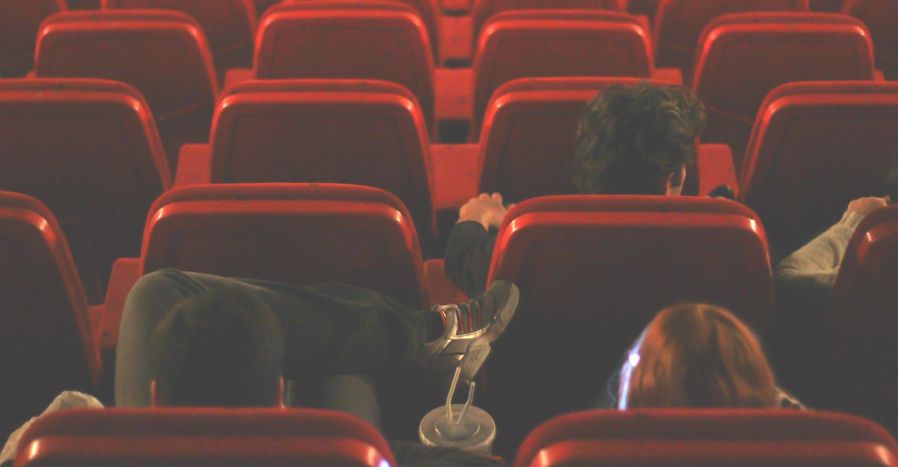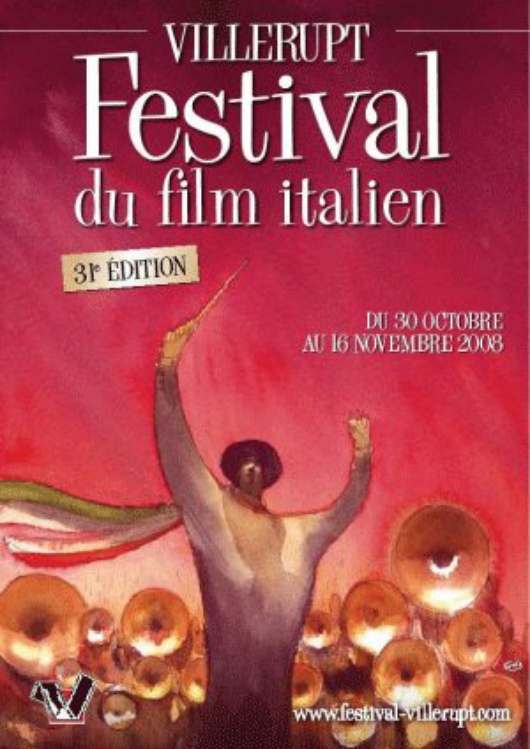
Villerupt’s Festival: Viva il cine italiano!
Published on
Every year, Villerupt, a small city in the north-east of France, holds a celebration of Italian cinema. For the 31st event, the Italian Film Festival in Villerupt paid tribute to film score composers and realistic contemporary cinema. The indisputably popular success of this event is a model of European cooperation at a cultural level.
 Festival of the Italian film in Villerupt: the heart of Italy
Festival of the Italian film in Villerupt: the heart of Italy
The first thing you notice when approaching Villerupt is the surrounding landscape, marked by the industrial past of the area. The city is in the heart of the steel basin in Lorraine. This soil, rich in ore, attracted many immigrant workers between 1870 and 1914, a period of economic boom; most of them Italian. In 1976, the descendants of these immigrants, having a passion for cinema, decided to create a festival, celebrating Italian culture and introducing it to new generations. This original aim has been surpassed. This year was the 31st anniversary of the festival. Along with the festival in Annecy, it is the largest French festival dedicated to Italian cinema; in terms of films (about 70 each year), spectators (between 30,000 and 35,000) and guest artists. The festival in Villerupt sets itself apart from other festivals thanks to its atmosphere. The soul of this festival is provided by the high number of volunteers, ensuring that everything goes well. About a hundred individuals from the area cheerfully work there each year. They translate, accompanying the invited artists; they handle catering, presentations, merchandise sales or are projectionists or welcome spectators to each show. The public is also really involved. You need only to take part in the, often lively, debates after the films to see this. Every time, the artists from the Italian film industry are truly touched when they discover this small Italy. Moreover, they remain devoted and often come back to present their work over several festivals.
Villerupt rewards films following the traditions of Italian drama
This year, the festival wished to pay tribute to soundtrack composers; and to achieve this, several composers were invited for an extraordinary concert; including Nicola Piovani, honoured for the soundtrack of La vita è bella by Roberto Benigni, Federico Fellini (Ginger et Fred, Intervista) and Nanni Moretti (La stanza del figlio).
The retrospective dedicated to the « Maestri » was quite remarkable with, among others, Il Buono, Il Brutto e Il Cattivo by Sergio Leone (1966), Il Postino by Michael Radford (1994), La Strada by Federico Fellini (1954), La Vita è Bella (1998) or Nuovo cinema Paradiso by Giuseppe Tornatore (1988).
 Mar nero
Mar nero
Two other categories complete the retrospective, the official competition and the survey; offering a selection of the best newly-released Italian productions. We can find there the latest productions from star names such as Cristina Comencini, Pupi Avati, Giuseppe Tornatore or Marco Tullio Giordana; films that have created a lot of discussion lately like Il Divo by Paolo Sorrentino and Gomorra by Matteo Garrone; as well as first films that show immense potential. This year, Mar Nero by Federico Bondi was the most rewarded film with two prizes: the youth jury and the cinema jury. Mar Nero tells the story of the touching relationship between a young Romanian that leaves her country to find work and the old and quick-tempered woman to whom she becomes the carer. The press jury rewarded Pranzo di Ferragosto (The Meal of the 15th August) by Gianni Di Gregorio. This film, tender and intelligent, describes a meal on a 15th August, not easy to manage for a man in charge of five grandmothers at the same time. The public awarded their prize to a romantic comedy, Amore, bugie e calcetto (Love, Lies and Round Ball) by Luca Lucini (2008). The festival’s honour list shows that Italian cinema doesn’t only deal with mafia or politics, as the films imported to France would imply, but that many quality works dealing with everyday Italian life are produced (comedies, dramas). This festival allows this cinema, rarely seen across the border, to be discovered.
Villerupt’s festival, benefiting from and dependant on European cooperation
The festival has naturally spread through the years, crossing the border to Luxemburg. The festival now benefits from organisations based in the cities of Esch-sur-Alzette and Luxemburg. The festival shows about 70 films in the original language. Yet, only 10% of the films seen during the festival are available in France leaving 90% that must be subtitled. It requires a budget of around 100,000 euros, a cost that was until now was accepted by Filmitalia (an organisation in charge of promoting Italian cinema abroad). This organisation was recently merged with Cinecittà Holding, which decided to stop this outlay for French subtitles. After some negociation, the company has finally accepted to finance 50% for the costs, the producers being in charge of the remaining 50%. However, the festival organisers had to invest 20,000 euros for subtitling. The organisers are worried for the future, because, without further financial support, it will be difficult to continue the festival. In difficult economic conditions, with subtitle costs to add to next year’s budget, the organisers are more than ever relying on the public’s support to perpetuate this exceptional event for the region.
Villerupt’s Italian Film Festival
Thibaud SIMON
Translation : Cécile Zandvliet



